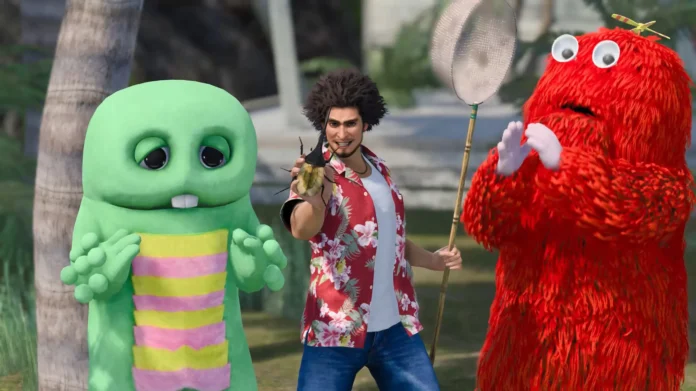Few phrases in video games send chills down one’s spine like, “It gets good after eight hours.” With that much time, you could beat Bowser in Super Mario Bros. Wonder, watch most of The Bear, or read The Great Gatsby — twice. It should be no surprise, then, that those six cruel words hang like an albatross around the necks of countless role-playing games collecting dust in my backlog.
So, dear reader, consider what I say equal parts warning, threat, and dare. But I must confess that Like a Dragon: Infinite Wealth gets good after eight hours. And in that long, cutscene-heavy intro, it’s doing something that’s charming in its own, not-very-game-like way.
The Yakuza series — of which Infinite Wealth is the latest entry, despite a confusing name change — has a reputation for slow starts in which the story drifts from one expository cutscene to the next, gradually setting the stakes of a melodramatic plot about bureaucratic negligence, post-incarceration societal reacclimation, or the fragile formation of a found family. But no prior entry has asked so much of the player so early.
The opening of Infinite Wealth isn’t a bad video game; it’s an entertaining TV show. The plot moves at a popcorn pace, deftly introducing lovable characters and a catchy hook: Our hero Ichiban, having just lost his job and spoiled any romantic hopes with his longtime crush, takes a trip to Hawaii to find his mother, whom he’s never met. But when he arrives, he gets drugged, jailed, and stripped of his belongings (quite literally!) while learning he’s not the only person looking for sweet mom.
A quest to kill the dragon, defeat the crime lord, or save the world this is not. The premise is ripe with human drama and developer Ryu Ga Gotoku Studio is game to juice it for every emotional turn, so that when control shifts to the player, we don’t just like these characters — we love them. We are, in the traditional sense, invested.
I appreciate how this happened, gradually lowering the viewer into an ocean of backstory. This is the eighth mainline entry in the series, the first primarily set outside Japan, and it features two protagonists and enough supporting characters to fill every role in a marching band. As if to raise the degree of storytelling difficulty to its highest point, the game’s creators treat Infinite Wealth as an entry point, providing enough context to make even the most exhaustive YouTube story recapper think, “This could probably be shorter.”
:format(webp):no_upscale()/cdn.vox-cdn.com/uploads/chorus_asset/file/25199704/bomy9fmo.png)
None of the previous Yakuza games are as grand as Infinite Wealth, a role-playing game that includes, within it, a fleshed-out parody of Crazy Taxi, a muscular Pokémon knockoff, and an asynchronous multiplayer riff on Animal Crossing that, on its own, could devour your free time for the rest of the month. And then there’s the lion’s share of the actual game: an operatic and campy international adventure.
And what a sweet story it is. At Polygon, my colleagues who’ve played the game seem to be split on which of the two heroes — longtime stoic icon Kiryu or Dragon Quest-obsessed Ichiban — they prefer. Both wrestle with family, mortality, friendship, and love, the stuff everyone can relate to. Clever writing has long been a strength of the series, which takes the Fast and the Furious approach of one ultra-lovable hero gradually turning every enemy into an ally, dismantling criminal superstructures by starting with petty thieves and ending as high as… well, I said no spoilers.
This is why, for me, I’m willing to say those wretched words. The Discord-era equivalent of “Abandon all hope ye who enter here.” The game gets good after eight hours.
Because Like a Dragon: Infinite Wealth does become a good video game after eight hours. But it’s something special long before then. Maybe that’s why I feel comfortable recommending Infinite Wealth. You won’t be suffering for the preceding eight hours, but rather, partaking in something that blends TV, film, and games together — switching to the most flattering medium for any given situation.
In case you’re still a little afraid, my gaming friends, I should clarify that you will play the game, at points, during the first eight hours. You’ll get into some scraps and street fights, sing karaoke, and enter an arcade containing a fully playable Sega Bass Fishing. In fact, the first hour or so keeps the control in the players’ hands for at least half the time. Which, hey, it’s a start!
But it’s worth setting expectations and being honest: I think it’s best to approach this chunk knowing you won’t need to hold a controller for much of it. That you can enjoy it during a lunch break, or with a very large bowl of popcorn after work.
Maybe this means I should learn from this lesson, and dust off the backlog of RPGs folks had recommended to me with the same caveat? We’ll see. I have another 40 hours to sink into this one — and I’m already past the tough part.


